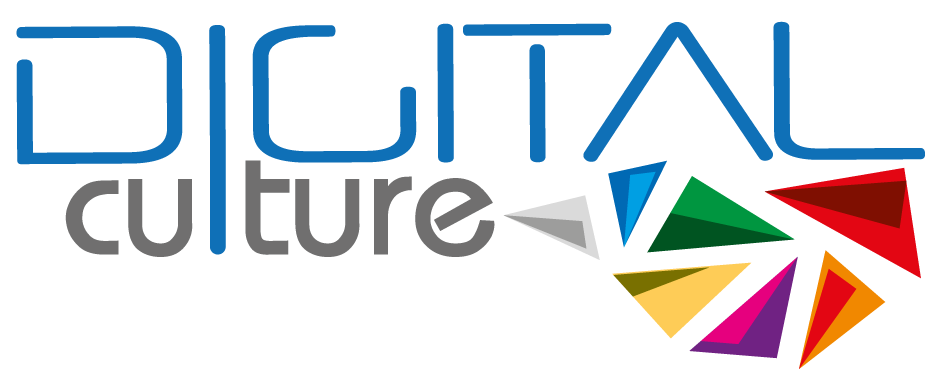Summary 03.1
This document provides the Curricula of the Digital Skills for Culture Courses as of December 2019, and then July 2020, revised in May 2021. The partners worked to build a valid curriculum, by refining the course goals, in order to fit the latest digital media innovations and requirements of the cultural sector, the guidelines from O1 and designed the concept and curricula for the Digital Skills for Culture Courses as a unified educational programme. Each course module responded to 2-4 competences DigComp2.0 and to cover the transversal competences of communication and collaboration. The course curricula and syllabus were evaluated in interviews and face-to-face surveys, during the ME in Rome, Dublin and Graz, workshop in Timisoara with more than 50 stakeholders from CI.
Download the full document O3.1 DigiCulture_O3.1.-DigiCulture_DSC-CurriculaSummary 03.2
This document provides the Syllabus of the educational programme Digital Skills and Social Inclusion for Creative Industries DSC, developed as online and mobile courses with integrated MOOC and OER tools, resources and solutions, translated into all partners’ languages, and designed especially for low digital skills adults. Based on the agreed curricula evaluated with the cultural stakeholders, the partners developed each course module syllabus to ensure that the modules do not overlap with each other, and that the program as a whole covers all the important areas for building up digital skills for the CI. Each course syllabi contains information about: General information about the course – Title of the course; Course leader: University/Faculty/department; Course authors; Training level; Course duration; Course target group; Competencies acquired through the course – General competencies; Digital competencies based on DigComp 2.1; Course Objective; Course prerequisites and connection; Course learning outcomes; Course Content, estimated Learning Hours, Type; Activities; Case study title and short description (Number of hours, Type, Language / Country, URL); External OERs; Evaluation and assessment; DigiCulture Course Badge; References, Bibliography.
Download the full document O3.2 DigiCulture_O3.2.-DigiCulture_O3_Syllabus_allSummary 03.3
This document provides a summary of the development of Module M1 – M13 of the educational programme Digital Skills and Social Inclusion for Creative Industries DSC, developed as online and mobile courses with integrated MOOC and OER tools, resources and solutions, translated into all partners’ languages, and designed especially for low digital skills adults. Based on the agreed curricula and syllabuses evaluated with the cultural stakeholders, the partners developed each course module. Each partner developed 1-3 modules based on their experience and expertise. There was a two phase development; the first in 2019, evaluated in a first pilot, as EN version, then again piloted in 2020 and adapted again in partner languages in 2021. All 98 Course modules – 13 courses are produced in EN, RO, DK, DE, IT, LT, GA, plus the Welcome course in all languages, developed with content, multimedia and interaction: Course materials with practical information; Multimedia examples; Tools and apps tutorials; Interactive online activities; Existing OERs and examples; CCI best practices; Wikis; Discussion forums; Glossary; e-assessment and peer to peer assessment; reflection in blogs, Study Cases, OERs.
Download the full document O3.3 DigiCulture-O3.3.-Courses-Reports_allSummary 03.4
The present paper describes how Open Educational Resources (OERs) are used and conceptualized in the frame of the DigiCulture Project. OERs are “digital learning resources offered online freely (without cost) and openly (without licensing barriers) to teachers, educators, students, and independent learners in order to be used, shared, combined, adapted, and expanded in teaching, learning and research”. OERs are interconnected with other concepts such as Open Source, Open Practices and Open Source. The OERs used or created in the project DSC are presented also by type, links and screen captures. A total of 278 OERs were introduced in the courses, 153 newly created for the DigiCulture project and 125 reused existing OERs. The types of the newly created OERs are as follows: 20 new videos, 32 new articles or HTML pages, 94 new books (collection of articles), 4 new images or infographics and 3 new case studies. The types of the reused OERs are: 75 reused videos, 15 reused article or HTML pages, 2 reused books, 2 reused images, 13 reused tools, templates or games, 6 reused guides, 10 reused virtual tours or galleries and 2 reused glossaries.
Download the full document O3.4 DigiCulture_O3_4_DSC_OERs_ReportSummary 03.5
TÁ O3 The Digital Skills and Social Inclusion for Creative Industries Online Courses (DSC) report presents the Digital Skills and Social Inclusion for Creative Industries MOOC Courses available online in English language and all partners languages (Romanian, Italian, German, Danish, Lithuanian, Irish) and through blended learning, the Integrated Virtual Learning Hub including an innovative mobile app aimed at low-skilled and at-risk adults, the Digital Skills e-assessment tool and Open Badges for Digital Skills.
This implementation was required to create an easy to use open and online course of MOOCs type, for all participants, different stakeholders the creative industries. The O3 Final report presents how the The Digital Skills and Social Inclusion for Creative Industries Online Course (DSC) achieved its final version, starting from the concept developed, integrated into the online environment, taking into account partners’ discussions and suggestions, as well as results and developments from other evaluation activities and, after development it was evaluated with learners in teo pilot phases, updated after their evaluation.
Download the full document O3.5 DigiCulture_O3.5_-MOOCs-Report_FinalSummary 03.6
This document presents the piloting results of the educational programme Digital Skills and Social Inclusion for Creative Industries DSC courses. It highlights some of the activities that learners and moderators have completed on the DigiCulture Virtual Learning Hub, as well as a couple of blended-mode piloting case studies conducted in two partner universities. The results of the piloting phase are compiled and presented as an overview of the process. During the piloting phase, a total of 645 learners have accessed the Welcome to DigiCulture course, the gateway to the English language courses, almost a third of these users successfully completed the courses activities and received the courses badges. The DSC Courses were piloted also in each partner language, resulting in 7 different instances in 7 different languages (including English). The blended learning pilots were run only in RO and IT, using online DSC MOOCs and online synchronous seminars with 206 learners, all youngsters with interests in digital humanities and digital media. There were a total of 2638 enrollments of 1381 learners, from 28 countries, in all the courses.
Download the full document O3.6 DigiCulture_O3.6-Piloting-the-MOOCs

